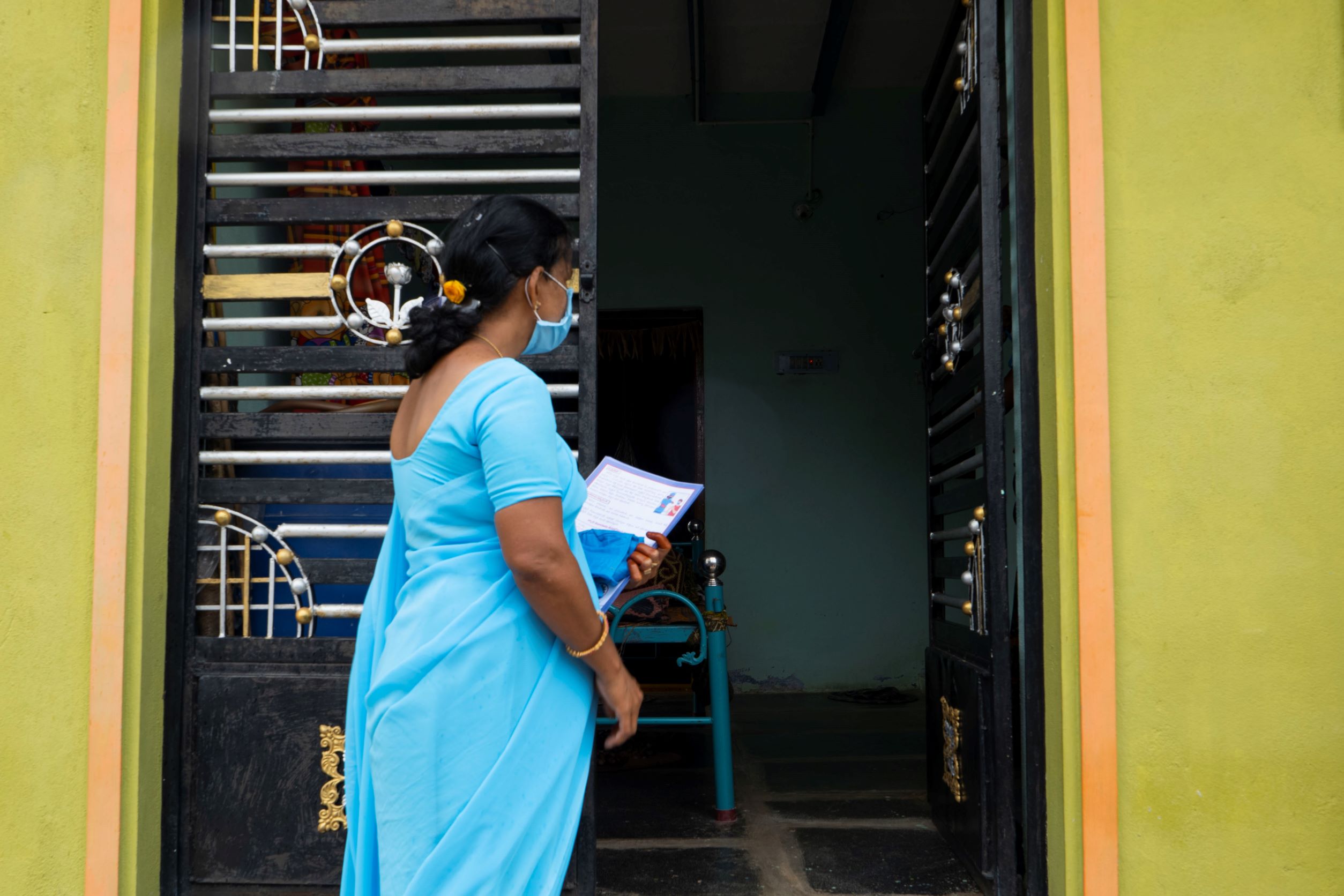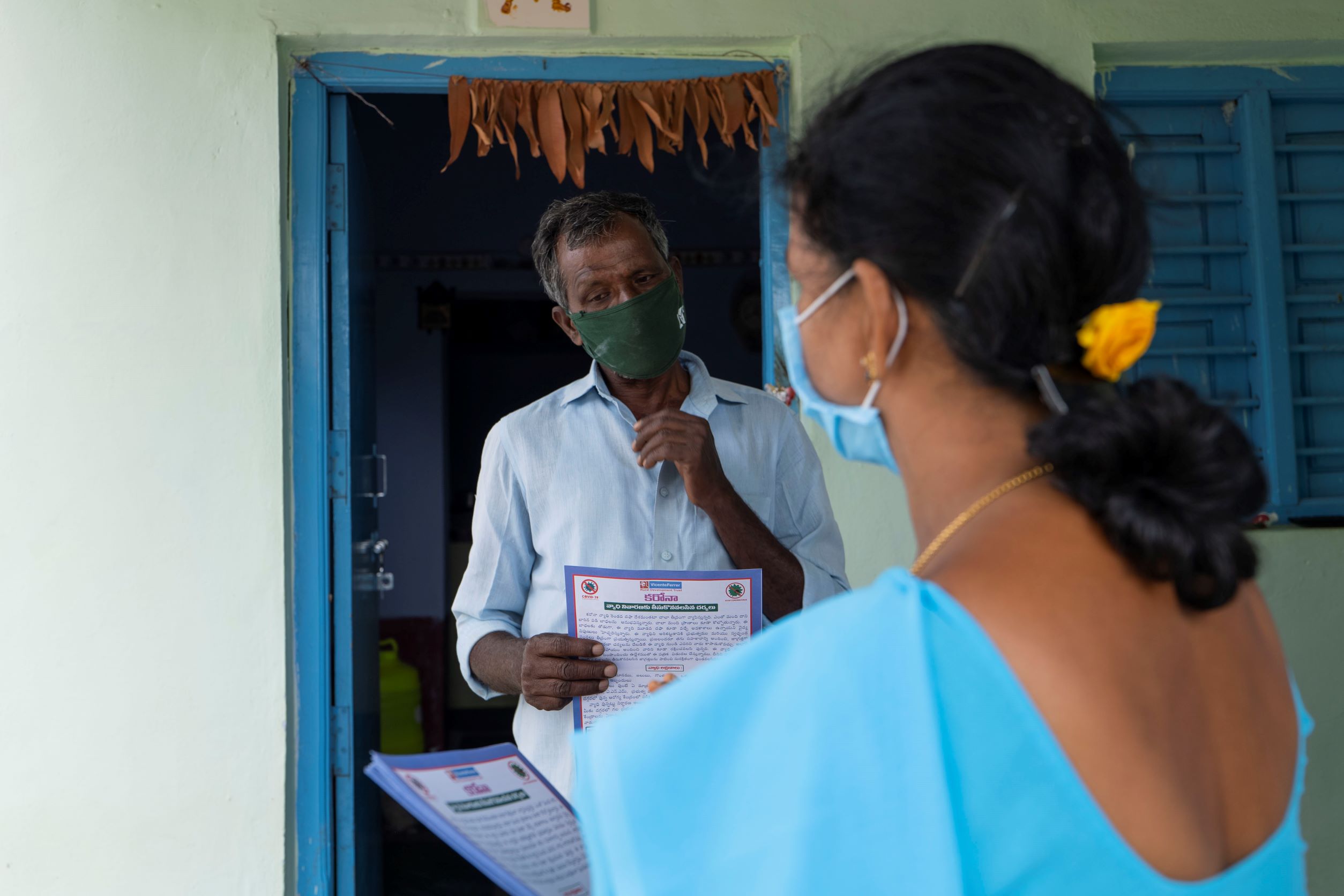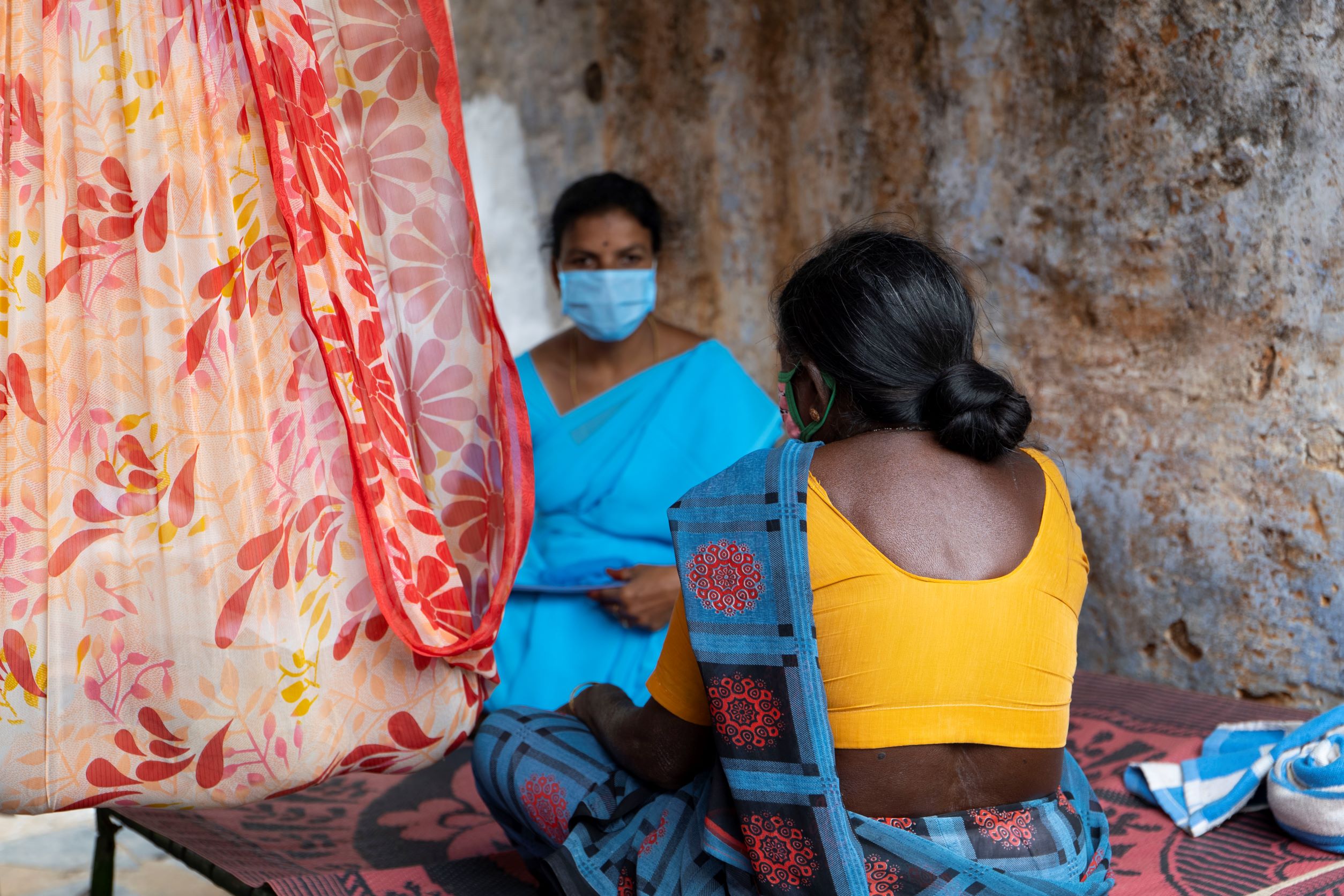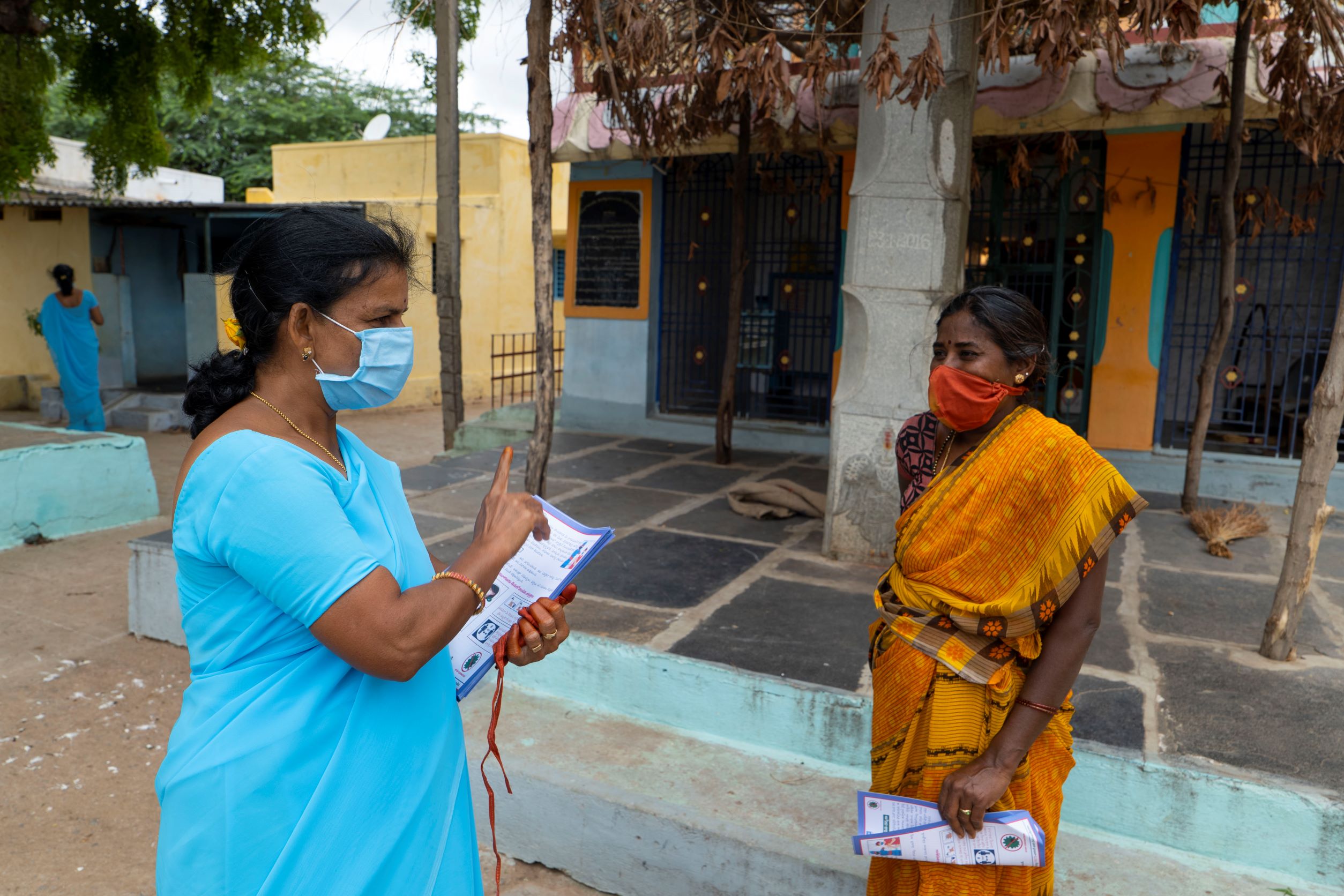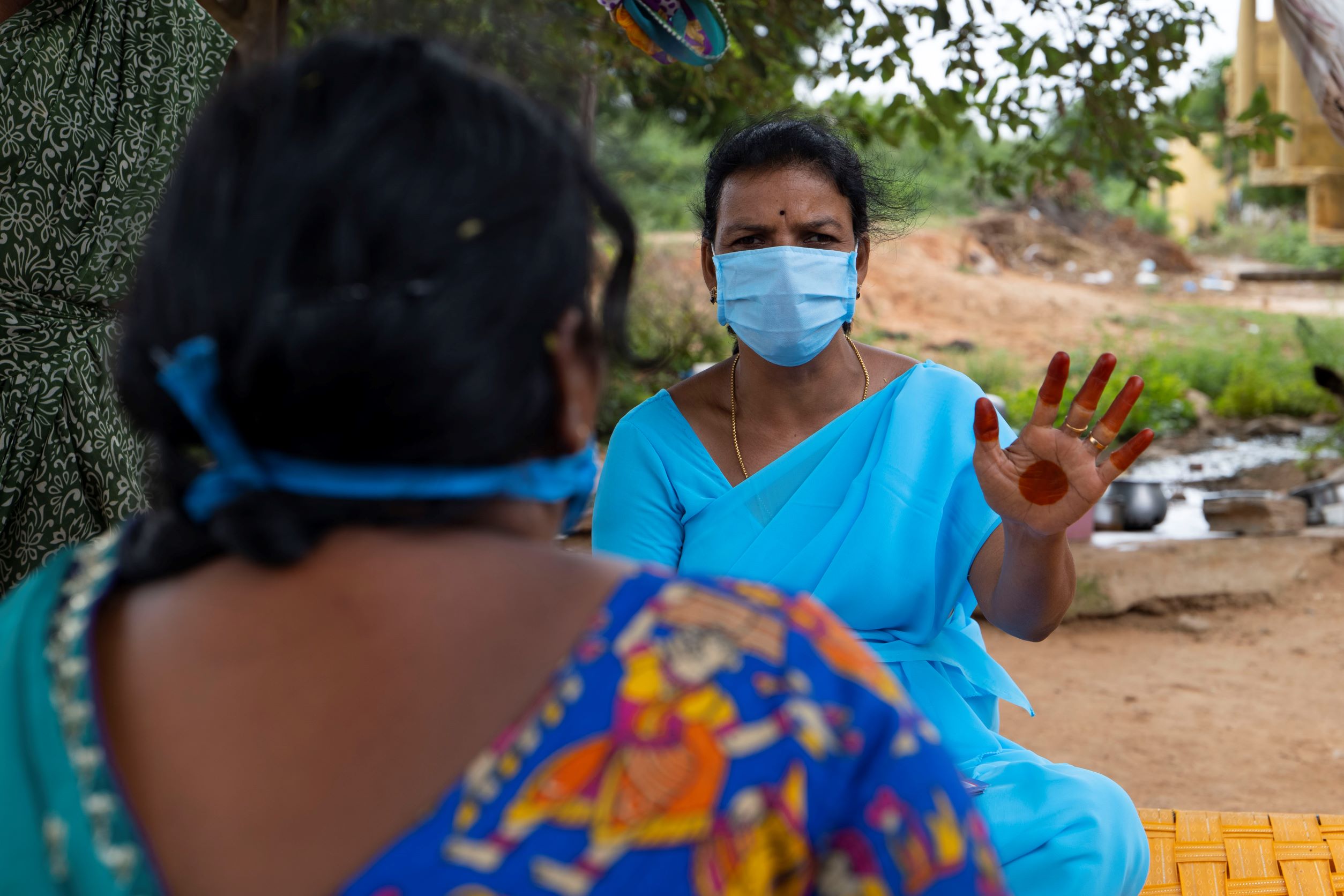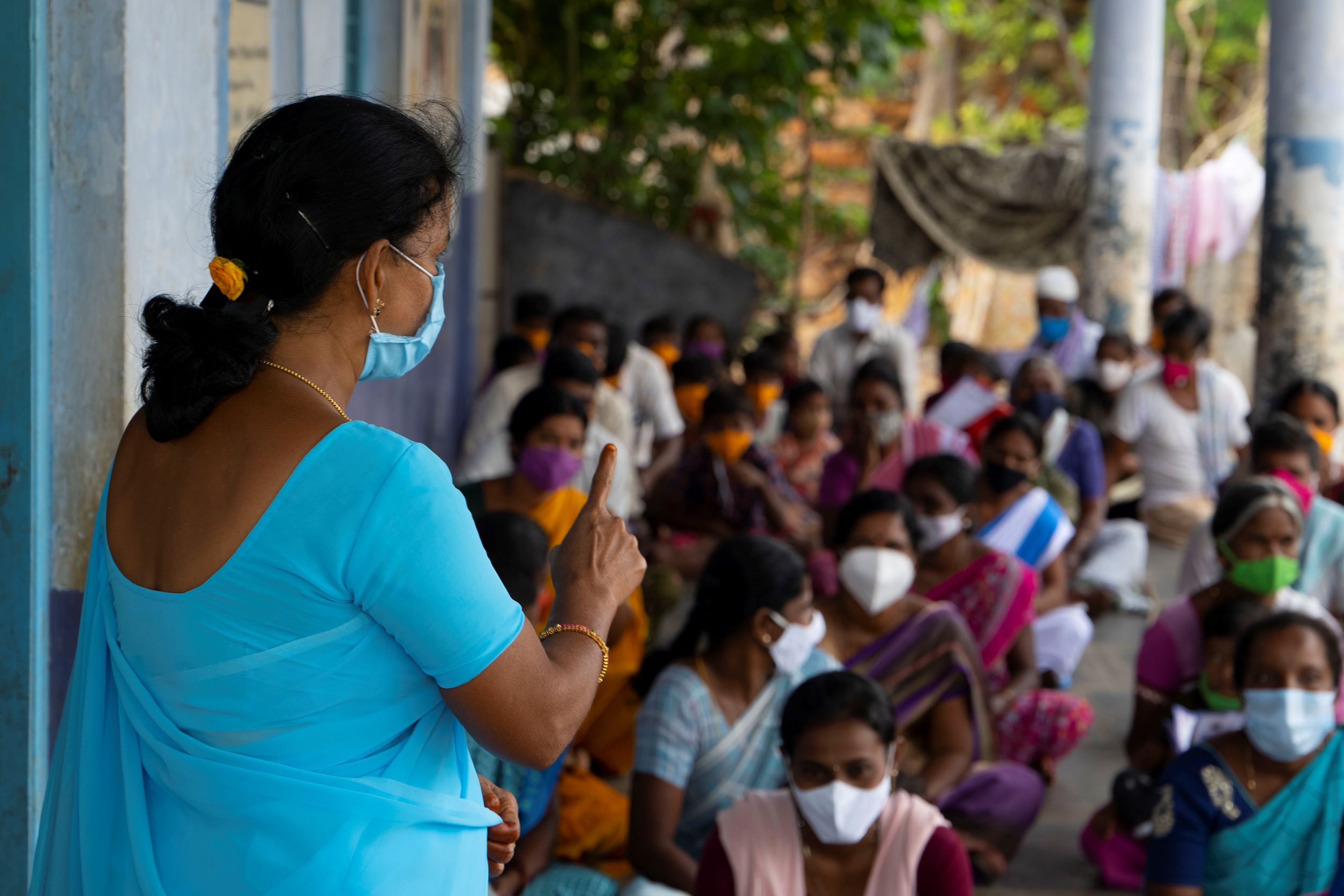Home > Blogs
A Day in the Life of a Rural Health Organizer
Here is a glimpse into a typical day of rural health organizer who goes door-to-door asking people to prepare for the third wave by following four rules of prevention: wear masks, wash hands, maintain social distancing and get vaccinated.
After carefully arranging the pleats of her sky blue saree, Usha dons a mask to complement it. She smiles and the corners of her eyes crinkle in pleasure. “People in villages call us blue angels,” she says shyly.
Usha’s day begins at the break of dawn. She gets up at 4:30 am. She cleans her house, cooks food for the family and then gets ready to continue her work as a RDT rural health organizer in the Bukkarayasamudram region of the Anantapur district. She visit villages in the region to perform health check-ups and spread awareness about health and hygiene.
“Sometimes,” Usha pauses before continuing, her gaze fixed on a fallen leaf for a moment. “Sometimes it was difficult to reach out to people during the second wave,” she says. “There was a sense of cluelessness as what and how to explain the resources crises to people when the second wave hit. But I thought to myself if I remain uncertain then who will go and spread awareness among the people?” Every mandal has at least one appointed RDT rural health organizer.
As the second wave struck with four times the ferocity of the first, leaving devastation in its wake, RDT joined the frontline forces and launched various relief missions. Now, as the nation prepares for a third wave, the government and civil society stand united to prevent the country from falling into crisis again. RDT has also taken part in the initiative to raise awareness regarding COVID-19 prevention.
“It is very obvious that people in rural areas have inhibitions about the vaccine,” explains Usha, stepping out of the second house on her round of door-to-door visits. People in rural areas have limited access to services and information, which can contribute to the spread of misinformation. However, with continuous door-to-door visits, group awareness sessions, and street plays like pale solodhu, people are now leaving their trepidations behind and embracing the benefits of vaccination.
“Vaccine is the only available solution to fight COVID-19,” says Ramanjanil, Panchayat secretary. “Despite the various rumors concerning the vaccine, we have successfully vaccinated 600 people of 1200 people with single dose in Cherlopalli village of the Bukkarayasamudram region. We are making progress.” According to Ramanjanil, the government has set up one vaccination center in every village.
Usha has been working as an RDT health organizer for the past 20 years and visits 20 to 25 houses on her weekly door-to-door visits. “I love my job,” says Usha with enthusiasm. “Since my childhood, I have been participating in various types of awareness programs conducted by the RDT. This motivated me to pursue nursing studies and to work with the RDT healthcare network.”
As Usha visits a fourth house to inquire about the health of the family, the children of the house gather around her, playing and laughing while she speaks with their mother. “I had never heard about the vaccine before. Not even the rumors, neither good nor bad,” says Laxmidevi, the mother and resident of Cherlopalli village. “However, after attending group sessions and speaking with Usha personally, I have decided to get myself and my husband vaccinated.”
Like Laxmidevi, many others in the village had no information about the vaccine, but others had fallen for the rumors surrounding it. “I had heard from someone that if I get vaccinated, I will get sick,” confesses Varalaxmi, cradling her two-month-old baby. “When I read the information on the pamphlets given by the RDT, I spoke with Usha and Renuka, the Anganwadi (daycare center) teacher who explained to me the purpose of the vaccine. That was then when I decided to get vaccinated.” Now, Varalaxmi believes that since she is vaccinated, she will be able to protect her baby as well.
Usha always writes down her number on the pamphlets that she distributes to the families and asks them to call her if the need arises.
“Awareness is a tool and we must use it wisely,” says Renuka, the Anganwadi teacher who plans awareness programs and sometimes accompanies Usha on her visits.
“I feared that I will die if I get the vaccination. However, because of the health sessions conducted in our village, my son got vaccinated and he is healthy. I now have confidence in the vaccine,” says Channama, who encourages everyone to get vaccinated.
After completing the round of house visits, a small group gathered at the local RDT school and community center where Usha and Renuka answered their questions and repeated the four rules of prevention: wear masks, wash hands, maintain social distance and get vaccinated.
Text adapted by VFF USA
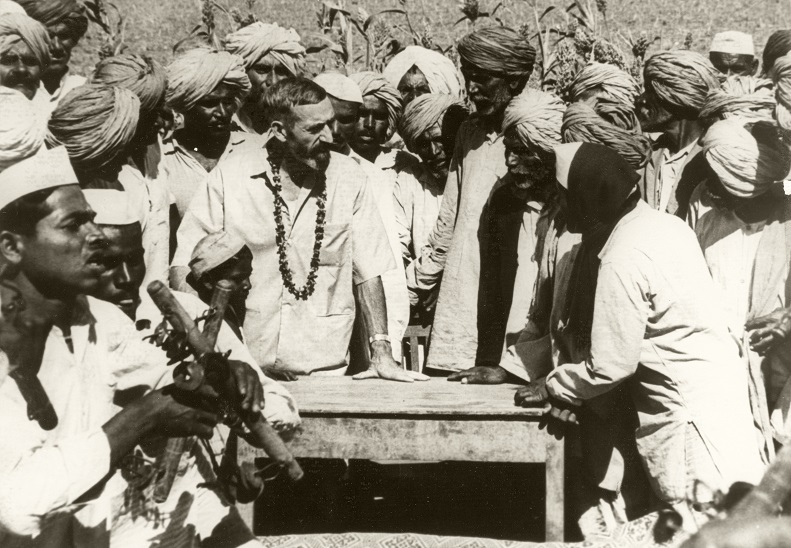
Commemorating 55 Years of the Rural Development Trust (RDT)
01/22/2024Today we commemorate the arrival of Anna Ferrer and Vicente Ferrer to Anantapur and the be...
READ MORE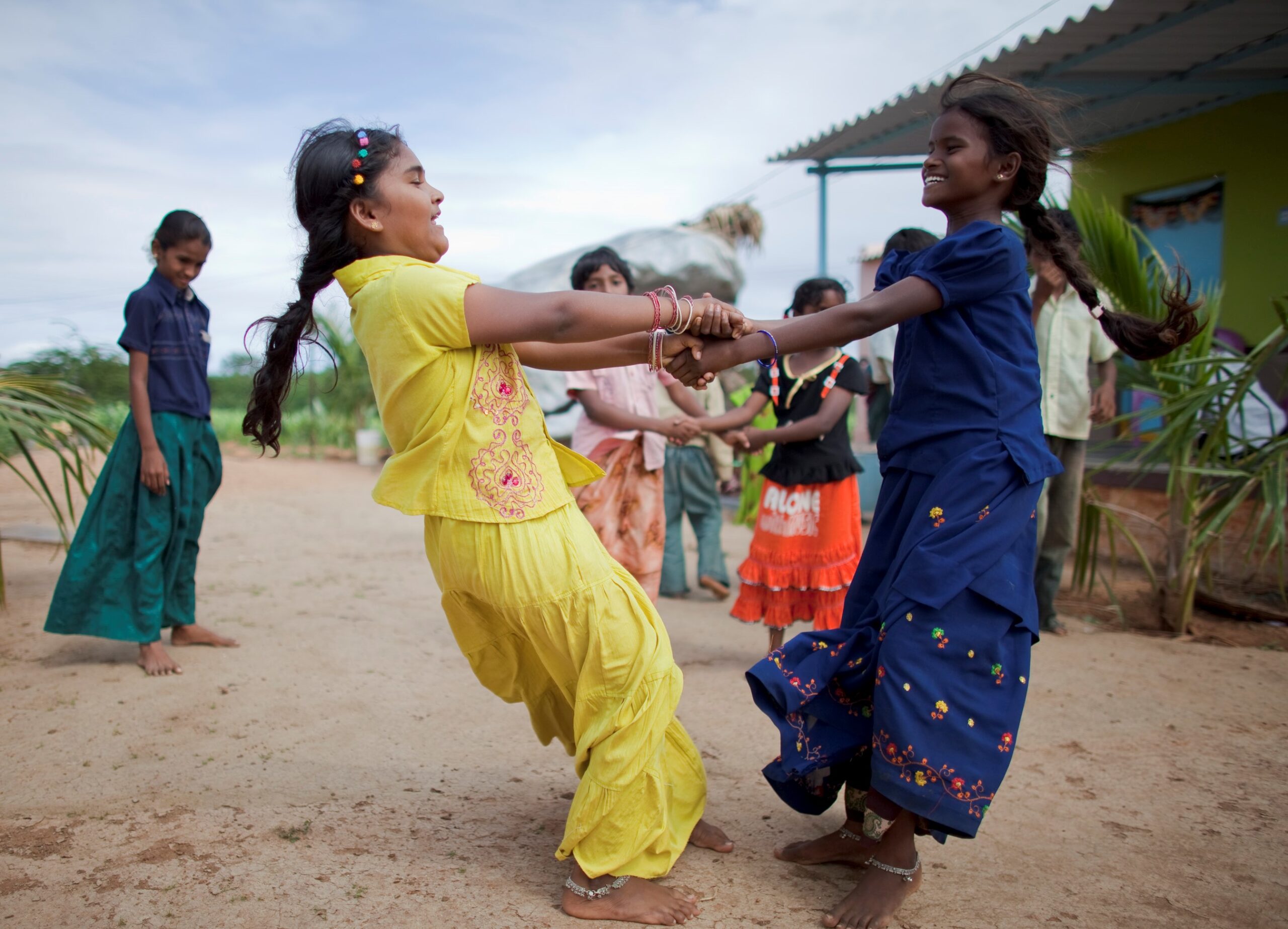
VFF USA & the SDGs: A Bastion of Hope by Suporna Chaudhuri
08/21/2023The United Nations’ Sustainable Development Goals (SDGs) comprise a mosaic of principles...
READ MORE
Empowering Dreams: VFF USA’s Journey at NATA Convention 2023
07/20/2023In the heart of Dallas, the NATA Convention 2023 was a lively gathering of people f...
READ MORESupport our work to help individuals and communities affected by COVID-19
Would you like to know how we use the funds?LEARN MORE
 July 26, 2021
July 26, 2021